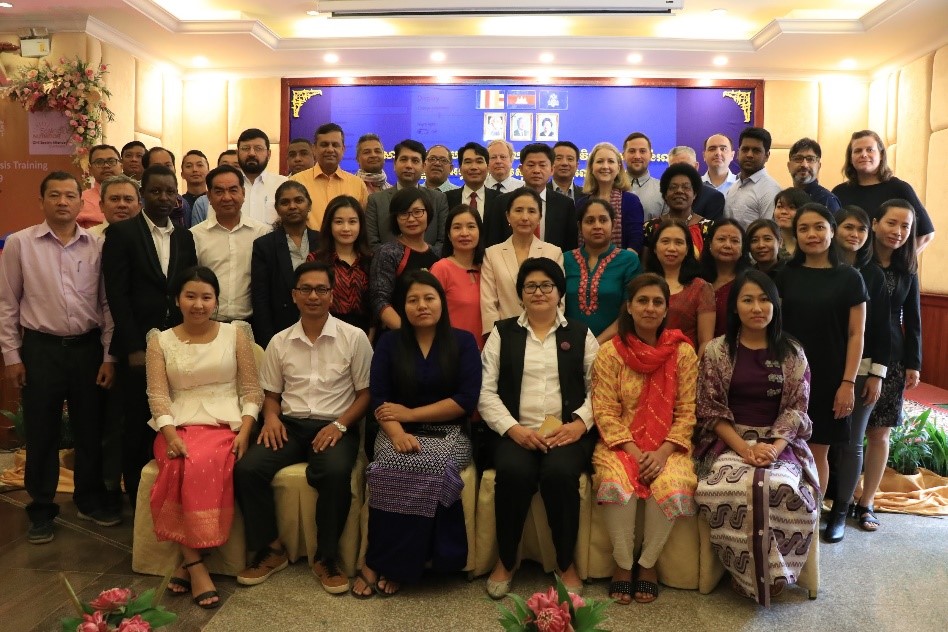Field Story
Ten must see global nutrition stories from 2023
December 18, 2023
#NutritionCantWait — Asia Coordination Group launches advocacy campaign
The COVID-19 pandemic is a health and human crisis that also threatens the food security and nutrition of millions of people around the world. This is why the SUN Civil Society Asia Coordination Group (ACG), with support from the SUN Civil Society Network Secretariat, launched the #NutritionCantWait advocacy campaign.
Posted on July 29, 2020

The COVID-19 pandemic is a health and human crisis that also threatens the food security and nutrition of millions of people around the world. Low- and lower-middle-income countries are most affected because before the pandemic they already had poor development indicators and fragile health and food systems, which are likely to increase a population’s vulnerability to adverse COVID-19 outcomes. It’s evident that the interruption of many health and nutrition services due to lockdowns and strained health systems will increase morbidity and mortality in these countries. Similarly, insufficient livelihood opportunities and weak food systems will undermine access to nutritious, safe and affordable foods.
While the newly released State of Food Security and Nutrition in the World report does not include the impact of the COVID-19 pandemic, researchers approximate that it will add up to 132 million people to the 2020 undernutrition estimates. A recent study conducted by researchers from the Johns Hopkins Bloomberg School of Public Health published in The Lancet Global Health Journal reveals that, based on the worst of three scenarios in 118 low- and lower-middle-income countries, an additional 1.2 million under-five child deaths could occur in the coming months, due to reductions in routine health service coverage levels and an increase in child wasting. An additional 6,000 children could die every day from preventable causes as the COVID-19 pandemic continues to weaken health systems and disrupt routine services. The researchers estimate that in the coming months up to 300,000 children could die in India alone, another 95,000 in Pakistan, 28,000 in Bangladesh, 13,000 in Afghanistan, and 4,000 in Nepal.
The current situation demands that global leaders, governments, donors, private sector, civil society and others act now to protect and promote the right to health and nutrition and reduce vulnerabilities of women and children impacted by COVID-19. The key priorities at this moment should be to ensure access to safe, nutritious foods, particularly for young children and pregnant and lactating women, to continue to promote and protect breastfeeding, and maintain delivery of lifesaving nutrition interventions through health systems and humanitarian response while minimizing risks of transmission.
This is why the SUN Civil Society Asia Coordination Group (ACG), with support from the SUN Civil Society Network Secretariat, launched the #NutritionCantWait advocacy campaign.
The ACG is a group of 13 Civil Society Alliances (CSAs) established in 2017 to enable continued collaboration among CSAs in the Asia Region for effective implementation of national nutrition plans through information sharing, knowledge exchange and implementation of joint advocacy opportunities.
The #NutritionCantWait campaign will focus on the following specific objectives:
The pandemic is risking essential services and many key nutrition interventions just can’t wait. The pandemic today and the malnutrition crisis around the corner risk an entire cohort of women and children – nutrition must be central across the response, resilience building, and recovery phases. You can support the campaign by sharing campaign messages as well as relevant photos, videos and information about the importance of prioritizing nutrition during the COVID-19 response with the hashtag #NutritionCantWait.